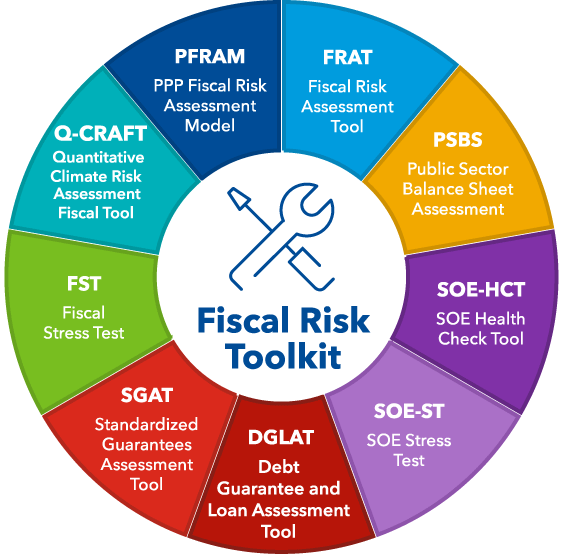
FISCAL RISK TOOLKIT

helps governments assess the fiscal risks posed by climate change. It allows governments to conduct quantitative, long-term analysis of the impact of climate change on key macroeconomic and fiscal indicators, including government debt, under different climate scenarios. The tool uses advanced empirical data to help assess risks across various Intergovernmental Panel on Climate Change (IPCC) emission scenarios through the end of the century.
Q-CRAFT is a transparent, flexible, and easy-to-use Excel-based tool developed by the IMF's Fiscal Affairs Department (FAD) to help governments at all stages of development assess long-term macroeconomic fiscal risks from climate change.
Q-CRAFT equips government institutions, such as Ministries of Finance and Independent Fiscal Institutions, with comprehensive, data-driven assessments of long-term macroeconomic and fiscal risks posed by climate change. By projecting key variables like GDP growth and debt-to-GDP ratios through 2100, it enables policymakers to:
Through its Capacity Development (CD) support, FAD helps member countries integrate climate considerations into their fiscal risk frameworks using Q-CRAFT. This approach not only quantifies climate-related fiscal risks but also strengthens macro-fiscal forecasting capabilities. CD initiatives have fostered cross-government collaboration and led to the inclusion of climate change fiscal risk analysis in Fiscal Risk Statements in numerous countries across the globe.